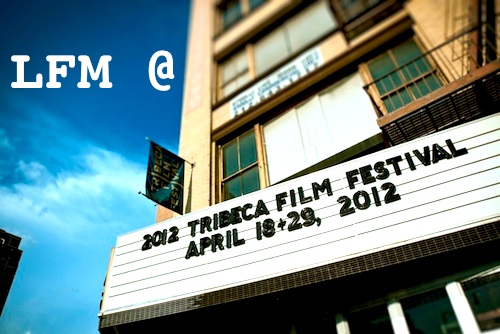By Joe Bendel. One crooked Filipino congressman is used to handing out the traditional sort of bribes, but when his daughter is kidnapped, he also has to give a little financial consideration to get the cops to do their job. Unfortunately, they are determined to hassle his former driver, whose daughter was also abducted. To save her, he will have to navigate Manila’s seediest back alleys without the help of the openly antagonistic police in Ron Morales’ Graceland, which screens during the 2012 Tribeca Film Festival.
Though ostensibly a driver, one of Marlon Villar’s primary duties is to clean up after his boss Rep. Chango’s predatory indulgences with underage girls—or at least it was his job. Given the soul-deadening acts Villar witnessed, he is shocked when the congressman summarily fires him. The timing is particularly bad, considering his hospitalized wife desperately needs a transplant. That is also why suspicion immediately falls on him after the kidnapping. In what was to be his final task for his former employer, he picks up his daughter Evie and her best friend Sophia Chango from school, only to be waylaid by armed thugs.
Unfortunately, complications arise during the kidnapping that put Villar in a particularly tight spot. In a way, it is like a dark twist on the botched kidnapping in Kurosawa’s High and Low, but unlike Toshirō Mifune’s upstanding Kingo Gondo, Chango cannot be relied on to do the right thing. In fact, it quickly becomes clear the case directly involves the politician’s bad karma.
 Granted, Graceland is not at Kurosawa’s level, but it is an intense dark crime drama that totally pulls off some audacious hide-in-plain-sight twists. However, it is not likely to delight the Filipino tourism bureau, depicting unhygienic slums, where shocking vice is carried on with near impunity, thanks to widespread police corruption.
Granted, Graceland is not at Kurosawa’s level, but it is an intense dark crime drama that totally pulls off some audacious hide-in-plain-sight twists. However, it is not likely to delight the Filipino tourism bureau, depicting unhygienic slums, where shocking vice is carried on with near impunity, thanks to widespread police corruption.
Of course, for a desperation-in-the-city noir, such a setting works perfectly – as does Arnold Reyes, the terrific lead. As Villar, he broods ferociously, but is no superman. In the complex role, he keeps viewers on the edge of their seats and fully vested in his fate. In memorable support, Menggie Cobarrubias radiates sleaze as the dishonorable congressman, while Dido de La Paz brings a feral cunning to the corrupt Det. Ramos.
Tightly helmed by Morales, Graceland works every step of the way and completely holds together in retrospect. With its visceral sense of place and Reyes’ powerhouse performance, it is one of the best films so far at this year’s Tribeca Film Festival. Highly recommended, it screens again tonight (4/21) and next Saturday (4/28).
LFM GRADE: A
Posted on April 21st, 2012 at 12:57pm.